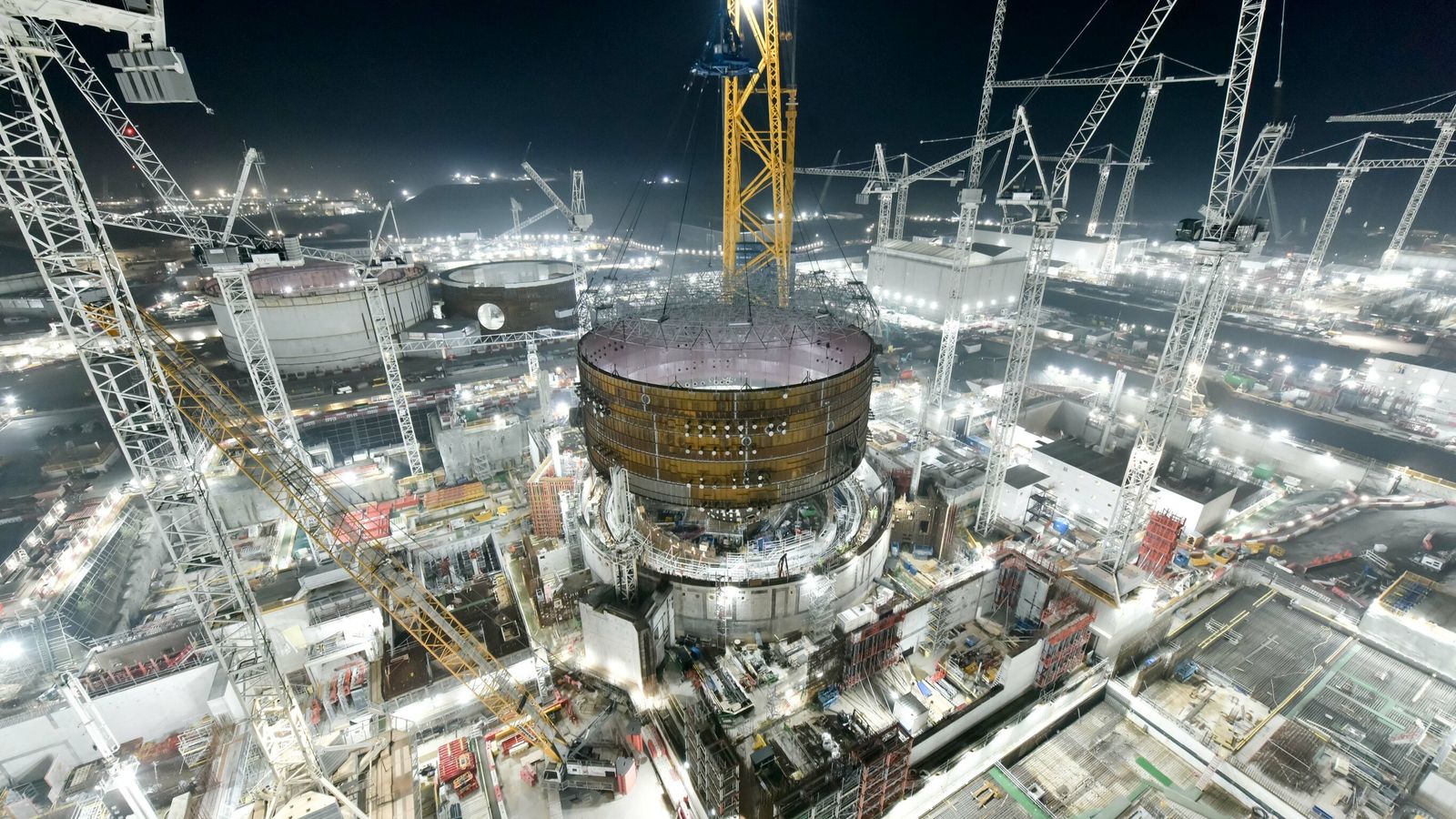The energy crisis sparked by Vladimir Putin’s war on Ukraine is having all kinds of consequences on the corporate sector.
Germany’s government looks set to bail out Uniper, one of the country’s biggest power utilities, with a package of up to €9bn apparently being discussed.
On Wednesday, the French government went one step further, announcing a full nationalisation of the energy giant EDF, the company that in Britain is the fourth largest household energy supplier and which is building Hinkley Point ‘C’, the UK’s first new nuclear power station in a generation.
Elisabeth Borne, the French PM, told parliament: “The climate emergency requires strong, radical decisions. We need to have full control of the production and our energy future. We must ensure our sovereignty faced with the consequences of the war and the colossal challenges ahead.
“That is why I confirm today the intention of the state to hold 100% of the capital of EDF.”
In truth, EDF was more or less publicly owned anyway. The French government owned 83.9% of its capital and it has become increasingly apparent during the current crisis that ministers were dictating how it is run.
No clearer example of that came when, in January, president Emmanuel Macron ordered EDF – which enjoys an effective monopoly on electricity generation – to sell more electricity at lower prices to domestic rivals.
British Airways to cut a further 10,300 flights until end of October
Chancellor Nadhim Zahawi says ‘nothing off the table’ on tax cuts and calls for caution on public sector pay rises
How new chancellor Nadhim Zahawi could affect the UK’s economy and taxes
As this was at a fixed price well below wholesale rates in the market, that baked in an automatic loss for EDF which in March said the policy – along with a requirement to cap energy bill increases for households and businesses at just 4% – would cost it €26bn this year.
EDF had been expecting to be able to raise prices by around 35% this year to reflect higher wholesale prices.
Paris had earlier agreed to inject €2.1bn into the company as part of a proposed fund-raising.
It is unlikely that EDF’s management will welcome full nationalisation.
Jean-Bernard Levy, EDF’s chairman and chief executive, made clear in February that the company would welcome fresh outside investment including, potentially, sovereign wealth funds.
But Mr Macron said in his election manifesto, published in March, that he planned to raise the government’s stake in EDF.
He said at the time: “The state will need to take in hand several aspects of the energy sector. We will need to take ownership of several industrial players.”
The French government has a number of reasons why it wants to take full control.
Mr Macron said during the election that he wants to see an ambitious construction programme of new nuclear power stations – between six and 14 – as France seeks to become carbon neutral by 2050. That is likely to cost tens of billions of euros.
Meanwhile, half of EDF’s existing nuclear fleet is offline, with the company warning in May that it was facing a hit to earnings of €18.5bn as it seeks to carry out inspections of and repairs to its reactors.
On top of that, in spite of its recent fund-raising, EDF was sitting on debts of €43bn as at the end of last year and its creditworthiness has recently been downgraded by the ratings agencies. The company is also facing additional costs as a result of projects – like Hinkley Point ‘C’ – falling behind schedule and going over budget.
It is the view of Mr Macron, a former investment banker, that the kind of money that EDF requires to do everything he wants it to do will not be supplied by capital markets but can only be provided by the French state.
What remains unclear is whether Mr Macron’s government will seek to compensate EDF’s minority investors for their shareholdings or whether he will use special powers to take control of the business.
Today’s news is the latest twist in a debate that has gone on for decades about the ownership of France’s power industry.
EDF was created in 1946 as a state monopoly – replacing hundreds of others – in order to generate, transmit and distribute electricity nationally and to rebuild a national transmission grid that had been shattered during the Second World War.
But by the early 1990s, with an eye on power markets elsewhere, the company’s management was becoming frustrated at being controlled by the government.
Germany had never fully nationalised its electricity industry while the UK had successfully privatised its sector in 1990.
EDF’s management argued that being privately-owned would free it to take positions in overseas power markets undergoing liberalisation, such as the UK, where it entered the household supply market via the takeover of the old London Electricity and, later, the nuclear power generator British Energy.
Being wholly owned by the French state was always going to put a block on EDF’s ambitions to expand internationally.
In 2002, president Jacques Chirac’s government agreed that part-privatisation was desirable, with a slick UK-style advertising campaign – featuring music by the cult New York band The Strokes – deployed to build brand awareness.
By then, in spite of union opposition, the French public had also come around to the idea of privatisation following the success that France Telecom – now called Orange – had enjoyed after it was privatised.
In November 2005, shares of the company were finally listed in what was the biggest IPO France had seen in a decade.
Another argument deployed by the French government at the time was that EDF needed to be privatised in order to clear the debts it had amassed while under state ownership.
Now the wheel has turned full circle.




